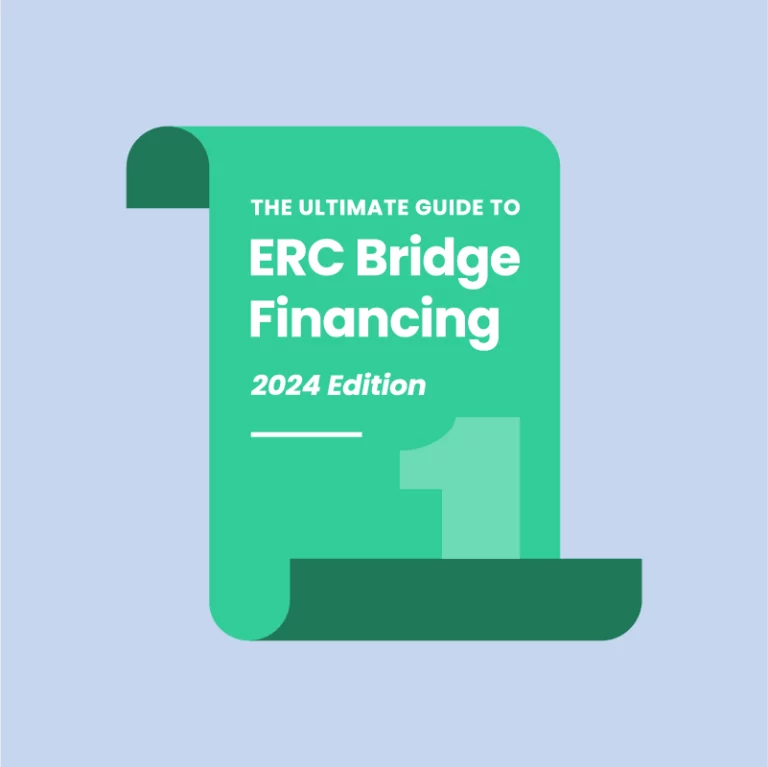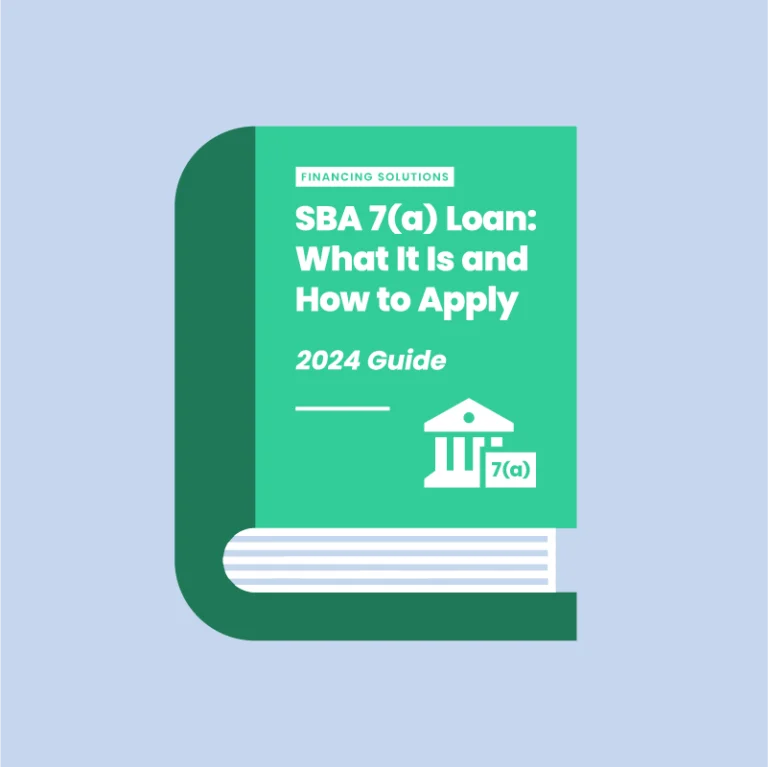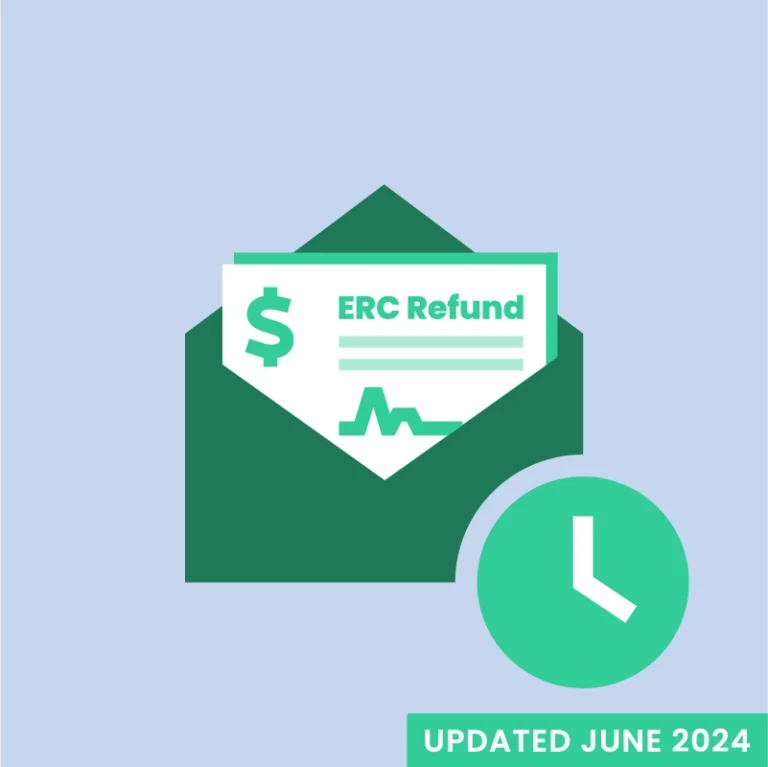The Small Business Administration (SBA) offers several highly coveted financing programs for American entrepreneurs and small businesses. Among these programs are the 7(a) loan and 504 loan. Both are partially guaranteed by the SBA and boast more competitive rates, terms, and loan amounts than conventional financing. While these loans may appear similar at first glance, they are distinctly different.
Let’s dig into the differences between 7(a) loans and 504 loans so you can decide which is right for your business.
What Is an SBA 7(a) Loan?
The SBA 7(a) loan is the Administration’s most popular and versatile program. There are seven types of 7(a) loans that can collectively be used to finance many everyday business expenditures, including working capital. 7(a) loans are funded by two sources: an SBA-approved lender and a borrower with a maximum loan amount of $5 million. Rates may be fixed or variable, and an SBA Guarantee Fee will likely apply.
For context, the SBA guaranteed 57,362 7(a) loans versus just 5,924 504 loans in 2023.
SBA 7(a) Loan Use Cases
A 7(a) loan may be used to:
- Purchase, Refinance, or Improve Real Estate and Buildings
- Acquire Short-Term or Long-Term Working Capital
- Refinance Business Debt
- Purchase and Install Standard or AI-Related Equipment
- Purchase Furniture, Fixtures, and Supplies
- Change Ownership
- Finance Two or More of the Above Applications
SBA 7(a) Loan Pros and Cons
The benefits of an SBA 7(a) loan include:
- Wider Use of Funds. One of the most significant benefits of a 7(a) loan is its versatility. Borrowers can choose a single loan purpose or mix and match multiple loan purposes to meet their unique needs.
- Lower Rates and Fees. The interest rates and fees for a 7(a) loan tend to be much lower than the small business loans offered through online lenders and commercial banks.
- Availability to Startups. A 7(a) loan is one of the few options founders have that is not friends, family, crowdfunding, or equity-based financing.
However, an SBA 7(a) loan does come with some drawbacks:
- Higher Cost Than a 504 Loan. In addition to an SBA Guarantee Fee, there are quite a few more fees the SBA allows 7(a) lenders to charge. These fees tend to be higher than those charged for a 504 loan.
- Cumbersome Application Process. Applying for a 7(a) loan necessitates a lot of paperwork, time, and due diligence.
- Personal Guarantee and Collateral. Owners of the borrowing entity may be expected to sign a limited or unconditional personal guarantee. Additionally, 7(a) lenders may require collateral depending on the type of 7(a) loan and amount.
What Is an SBA 504 Loan?
The SBA 504 loan is the Administration’s lesser-known, long-term, fixed-rate program. 504 loans can be used to purchase fixed assets like real estate and heavy equipment. In contrast to 7(a) loans, 504 loans are funded by three sources: a third-party lender, a Certified Development Company (CDC), and a borrower with maximum loan amounts of $5 million, $5.5 million, or more. Rates are typically fixed, and for 2024, the SBA Guarantee Fee will not apply.
SBA 504 Loan Applications
A 504 loan may be used to:
- Purchase or Lease Land for an Eligible Project
- Improve a Site (e.g., Landscaping, Land Grading, Road and Parking Construction)
- Purchase One or More Existing Buildings
- Convert, Expand, or Renovate One or More Existing Buildings
- Construct One or More Buildings
- Purchase or Lease Heavy Equipment and Machinery
- Refinance Commercial Real Estate Debt (Including SBA Loans)
SBA 504 Loan Pros and Cons
The advantages of an SBA 504 loan include:
- Larger Loan Amounts. There is no cap on the project size that a third-party lender can fund. Even though the CDC’s portion cannot be applied to more than $5 million, or $5.5 million for specific manufacturing and energy-efficient projects, the total loan can exceed those amounts.
- Lower Cost of Capital. A 504 loan is one of the most affordable small business loans available today, with even lower rates and fees than a 7(a) loan. Moreover, the rates are fixed on the CDC’s portion and often the third-party lender’s portion of the loan.
- Longer Repayment Terms. Another advantage of a 504 loan is its 10-, 20-, and 25-year repayment terms. This is a long-term loan, so borrowers can manage their cash flows more effectively.
However, the disadvantages of an SBA 504 loan are:
- Less Flexibility Than a 7(a) Loan. A 504 loan can only be used to fund certain fixed assets, like owner-occupied real estate and heavy equipment, and projects.
- Complex Two-Loan Structure. Applying for a 504 loan involves two lenders, a CDC and a third party, and subsequently two loans. This feature makes the process potentially longer and more cumbersome than a 7(a) loan for borrowers.
- Personal Guarantee. Like a 7(a) loan, a 504 loan requires owners to sign a limited or unconditional personal guarantee. Collateral, on the other hand, is usually not necessary.
Key Differences Between an SBA 7(a) and 504 Loan
SBA 7(a) Loan | SBA 504 Loan | |
|---|---|---|
Financing Amount | Up to $5 Million | Up to $5 Million, $5.5 Million for Specific Manufacturing and Energy-Efficient Projects, or Higher Through the Third-Party Lender |
Repayment Term | Up to 10 or 25 Years | 10, 20, or 25 Years |
Interest Rate | Fixed or Variable and Calculated Based on the Prime Rate or Optional Peg Rate Plus the Lender’s Spread | Fixed for the CDC’s Portion of the Loan and Calculated Based on the Market Rate for U.S. Treasury Notes |
Fees | Lender’s Fees Plus an SBA Guarantee Fee | CDC’s Fees, Lender’s Fees, Plus No SBA Guarantee Fee |
Down Payment | 10 to 30% With Some Exceptions | 10 to 20% |
Additional Collateral | Often Required for Loans Over 50,000 | Often Not Required |
Eligibility Requirements | Lender’s Criteria Plus the SBA’s Minimum Requirements | Lender’s Criteria, CDC’s Criteria, the SBA’s Minimum Requirements, Plus the Following:
|
Use Cases | Wide Variety of Everyday Applications, Including Working Capital, Inventory, Business Acquisitions, Real Estate and Equipment Purchases, and More | Real Estate and Heavy Equipment Purchases, Construction, Improvement, or Renovation Projects, and Commercial Refinancing |
Deciding Which SBA Loan Is Right For You
Deciding between the SBA 7(a) and 504 loan programs will depend on the application and your business’s goals. Let’s look at common instances where a 7(a) or a 504 loan is more appropriate.
Your business should choose a 7(a) loan for:
- Working Capital to Purchase Inventory or Supplies, or Bridge Cash Flow Gaps
- Smaller Loan Amounts With a Shorter Turnaround for Funding
- Purchases of Real Estate or Heavy Equipment That Don’t Meet the Project Eligibility Requirements of a 504 Loan
Alternatively, you should choose a 504 loan for:
- Purchases of Real Estate or Heavy Equipment
- Construction, Improvement, or Renovation Projects
- Refinancing 7(a) Loans or Other Commercial Debt
Now, let’s consider two real-world examples.
Say you own a graphic design agency in Seattle, WA. Business is booming, but you’re at capacity with your current team and office space. You need a loan to cover the cost of hiring more staff, purchasing new equipment, and relocating to a bigger office. An SBA 7(a) loan is an excellent option in this example.
Across the street from your graphic design agency is a specialty coffee shop with a similar problem. Business is good, but they have outgrown their location due to increasing demand and popularity. The owners have found a plot of land suitable for a larger location that would enable them to serve more customers and expand their menu offerings. This endeavor will require a loan to cover the land purchase, construction, equipment costs, and ancillary expenses. An SBA 504 loan is a better option in this example.
Navigating Your Path to Business Growth
The SBA’s 7(a) and 504 loan programs are two of the most desirable financing options available to entrepreneurs and small businesses today. Deciding which SBA loan is right for your business will depend on your needs and goals. Whether you’re still unsure or ready to move forward, 1st Capital Financial can help. Start the process here.
Apply for an SBA 7(a), Express, or 504 Loan Today





